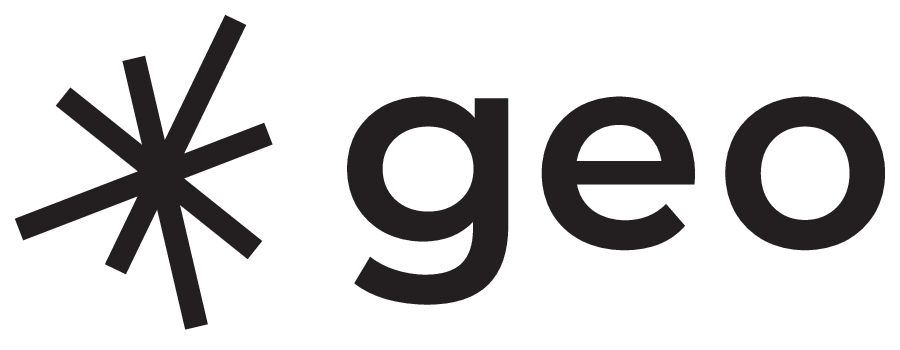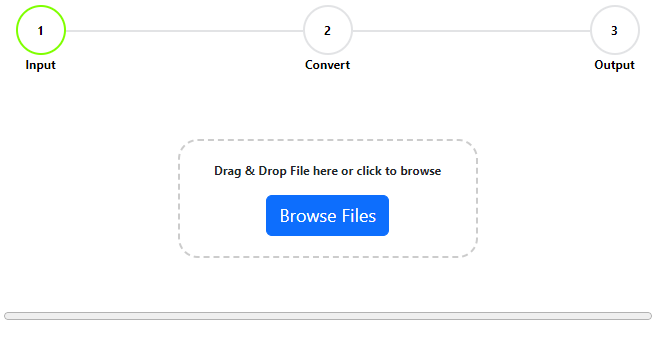Thierry Gregorius is an executive coach specializing in the digital and geospatial sectors.
Thierry’s been in geospatial all his 25-year career, and he’s always enjoyed the learning and development side of things the most. He’s helped teams grow by addressing challenges from the human side vs. the geospatial side in leadership positions for large multinationals, smaller companies, and as a consultant.
In 2020 he went from full-time employment to splitting his time between working three days for his employer and two days as a freelancer. He qualified as an executive coach and now works with people one to one, helping people address specific issues they face and finding their true goals.
WHAT’S THE DIFFERENCE BETWEEN COACHING AND MENTORING?
Coaching is someone helping you help yourself.
Coaches ask questions framed to help you clarify your own mind and come up with your own solutions and ideas.
It’s powerful because, as the studies show, if you help anyone generate their own ideas and solutions, they’re more likely to implement them and succeed at them.
Mentoring, at least old-school mentoring, is giving advice.
It’s not about asking questions but providing the other with answers. And even though that can also be helpful, it doesn’t work as well as asking useful questions.
You can mix coaching and mentoring together where you provide advice, but you also use questions to help people frame what’s in their heads.
There is a slight overlap these days in the two forms. During a mentorship course, you’d be taught to work as a coach and not just to give advice.
Still, many people confuse coaching with advice-giving, and I always explain to my clients that I’m not here to give them advice. I will most certainly share any useful information I picked up in the industry in the past 25 years at the appropriate times, but I’m here to see that you come up with your own solutions and ideas.
WHAT’S YOUR DEFINITION OF A GEOSPATIAL CAREER?
It’s difficult to define — it’s a broad field spanning across all industry sectors.
More than that, you can go into a geospatial career from multiple routes. You can start off doing a geospatial degree and then work in any industry as a geospatial specialist. Or you can be an expert in urban planning, be an insurance analyst, or a geologist.
They’re all using geospatial tools and skills, but you may not call yourself a geospatial person because your prime expertise is in another industry.
Many people end up having to clarify who they see themselves as.
What are your true goals? What are your strengths?
You can’t plan your career until you know what these are.
WHAT ARE THE MOST COMMON ISSUES PEOPLE FACE IN THEIR GEOSPATIAL CAREERS?
Because the geospatial industry is broad, the issues people have in common aren’t necessarily related to geospatial. The main issue for a geospatial person is that you have many options of where you can go, the kinds of things you can do, the industries you can work in — all these choices and options can overwhelm you if you don’t know exactly what you want to do.
Most people just want to work out what they want, which isn’t always as apparent as it may seem at first. Once you get a clear idea of what you want, you can work on the steps you need to take to arrive at that destination.
DECISION FATIGUE IS REAL
Think of freelancers and entrepreneurs. When you’re in charge of a small business, you make hundreds of small decisions weekly. In that process, it’s hard to see what’s important and what’s a priority.
Can you see through the noise and distill priorities? How can you get to where you want to be?
It’s worth exploring your goals and seeing just how much you’re in charge of your own destiny.
LIKE RELYING ON BEING NOTICED FOR THE WORK YOU DO AND ASSUMING YOU’LL PROGRESS AUTOMATICALLY TO GET TO THE NEXT THING?
Yes, you might assume that because you’re doing outstanding work, it will get noticed. You’re expecting opportunities to present themselves and get your promotion.
That’s just not the way it is.
You need to be explicit about what you want. If you want a promotion or a particular job as the next step, you need to be explicit about that and talk to your boss about it.
Ask, “What do I need to do to arrive here? Can you help me? How can I help you?”
These conversations need to be specific — either as part of the annual appraisal process or as part of an individual learning plan.
I’ve worked with several people who clearly do good work, but they didn’t make it clear to anybody else where they want to move to, which job they want as a next step, and then they were surprised it didn’t happen automatically.
DEALING WITH IMPOSTER SYNDROME. WHAT’S YOUR ADVICE ON THAT?
It’s widespread, and we all have insecurities. It’s true for everybody.
You feel you’re a fraud; you think you’re surrounded by people who are more intelligent than you, you’re not in that league, and you shouldn’t really be here.
If you’re in this situation, take a step back and have a look at your achievements. I spend a lot of time with people going through the stuff they’ve done, highlighting their own successes.
We take what we do for granted.
You may have strengths you take for granted because it comes easy to you, but it doesn’t come easy to anybody else. We overlook our own strengths.
If you’re waiting to be recognized, but you’re afraid to put yourself out there because you feel like an imposter, it’s a good start to reflect on your past achievements, the things you’ve done, what that means for the skills you have.
How does all that make you unique? How does that help other people?
Having gotten that clarity, it’ll become obvious how you can then present yourself and your work to others.
It doesn’t happen overnight. It’s a process, and you need to increase your awareness of what you’ve done and your own strengths.
WHERE AND HOW WOULD YOU START WITH THAT?
Start by asking people whose judgment you trust.
It could be friends, people you work with now or have done in the past, or your clients. Tell them,
“I’m rebuilding my CV highlighting my strengths, but I’m not quite sure what those or my major achievements are. How do you see this? Where do you see my development areas?”
If you work in a larger organization, you probably have an appraisal process where getting feedback from others is already built into the process. If you don’t work in an organization like that or haven’t got a process like that, you can choose the people to speak to you. You know who they are; you know who you trust.
If you want to go further, you could work with an external professional coach. Still, in the first instance, that may not even be necessary. You’d get plenty of useful information just by talking to people you trust.
DO YOU RECOMMEND THIS FOR FREELANCERS AND SMALL BUSINESS OWNERS, TOO?
Yes. Just because you work alone, it still applies.
It’s been an isolating time lately for many people. To those, I’d recommend joining an entrepreneurial community — local or online. It doesn’t even have to be geospatial.
In the UK, there’s a geospatial one called Geovation. You’ll find similar others in different countries.
It’s essential to make these relationships and to nurture them. Out of these conversations will come new inspiration — you’ll meet people you can have these conversations with. You’ll exchange ideas, experiences, and share learning from each other’s freelance or entrepreneurial businesses.
You can then create a picture of yourself through the feedback you get from these relationships.
IF WE START OUR CAREERS IN GEOSPATIAL, ARE WE THEN STUCK IN GEOSPATIAL?
No. A geospatial person has several transferable skills, which they can apply to other industries.
You could go into IT or a domain like environmental planning, insurance, or transportation. Your challenges are not because of the lack of skills but what to do with the ones you’ve developed as a geospatial person.
You need to clarify and prioritize what it really is you want to do and where you want to go.
But it’s true the other way around, too.
Some people go through self-development and decide to enter geospatial from somewhere else — IT developers often do that.
WHAT DO YOU SAY TO PEOPLE WHO ARE STUCK IN A RUT?
It’s easy to be stuck in a rut. We are creatures of habit.
First off, don’t look at having spent time somewhere as a sunk investment.
Think about it as experiences and valuable learning. Whatever you’ve done, wherever you’ve been, all contributed to who you are now.
This is useful whichever way you want to go next.
If you’re beyond the point of motivating yourself to do anything or think of anything you want to do next, you need to get out of that mental state to see your options again.
A practical and actionable way to do that is to reconnect with the things that really interest you.
Imagine what your ideal work day or week would look like.
What kind of people are you working with? What projects are you doing throughout the day? What does your schedule look like? What impact do you want to make on the world?
By thinking like this, you’ll remove yourself from the routine out of habits. Suddenly, you might see new opportunities.
There are always options. If you think there aren’t any, that’s because we don’t really see the world the way it is. We see the world the way we are in our heads. Change how you feel within your head, and out of that, you’ll start seeing new opportunities in the external world.
HOW DOES NETWORKING HELP IN FINDING NEW OPPORTUNITIES?
It’s vital to have good relationships — it’s a human need.
If you’re an introvert, it’s harder to make new relationships. You need to go outside of your comfort zone.
But you do need to reach out to people. At least these days, it’s a lot easier to do that. You can do it online — you don’t have to cold-call people or go into a room full of people and start chatting to strangers.
The more you do it, the more you find people are happy to talk to you. You will automatically reach out to like-minded people. That’s also how you find inspiration.
If you mix with people who have the same goals, the same interest as you, building new relationships will happen relatively easily.
Then you can start reaching out to people who perhaps work in a completely different area, which can also provide inspiration in other ways.
I always recommend traveling — obviously not lately [March 2021]. Traveling can be a major source of inspiration — experiencing new cultural environments, meeting different people can really open up your eyes to new things.
There are plenty of opportunities around you. You just need to get out of your comfort zone for that first step, and then you’ll see it becomes easier.
WHERE IS THE LINE BETWEEN IGNORING REALITY AND KNOWING THERE IS A PROBLEM?
Sometimes it’s challenging to know you’re in the wrong place.
You think everything’s fine. When people ask you, you say everything’s okay.
When you’re stuck in a rut, it’s hard to think straight. We are creatures of habit. As soon as we’re stuck in a rut, we get so used to it we don’t see it anymore that this is not what we want to do.
Living up to expectations can also play a part in this.
Are you doing what you want to do? Or are you doing what other people expect you to do? What do you think other people want you to do? Or? Are you doing things to impress people? Are you doing things to keep your spouse happy, impress your parents, friends, peers…?
That complicates things. There isn’t any clear cut way to do this or do that advice I can give you to break through that.
But why not take a deep breath?
Right now.
Switch off your screen, quieten down a bit. Take a deep breath and observe how you feel.
What feelings do you observe in your body? All emotions manifest themselves somewhere in your body.
When you feel excited, you feel it in your heart — literally. When you feel anxious, you feel a pain like sensation in the pit of your stomach. They are all emotions, and if you pay close attention and observe them, you can pinpoint them in your body.
These are your clues that something’s not quite right.
Many people experience anxiety with the pandemic. Often, when you stop and observe, you’ll get low-level anxiety rumbling around your stomach — you can’t really explain why, but it’s because of the environment you’ve been in for the past year.
At the moment, it might be even harder to differentiate that from the fact that you’re not in the right job or doing the right thing.
Give yourself some slack because we’re all going through hard times.
If you feel you’re not quite right and not in the right place, but you can’t exactly put your finger on the why, at least speak to people you trust to see how they feel and see how they see you.
SOMETIMES, WHERE YOU ARE IS THE RIGHT PLACE TO BE
Know when to take time out to go for a walk, switch off from all your screens and tune in with yourself. Revisit the things you enjoy doing outside of work — it’s even more important now.
Otherwise, you are treading water, running and running.
But where are you running towards?
If you constantly chase a future goal, like the next job title, you can overlook great things right in front of you.
I was recently working with someone who runs an incubator division in a large organization.
A young high-flyer, doing well. He’s been promoted rapidly. He had his eyes already on his next job to become a senior executive — a purely corporate role. As we talked things through, it transpired, he is an entrepreneur at heart.
Why does he then aspire to be a senior executive when the role didn’t have any entrepreneurial elements?
He realized that because he’d been promoted rapidly and was always onto the next thing he never stopped to ask himself,
What is it I want to do?
He always ran on the assumption he should aim for more. Because of that conversation, he realized he can slow down a bit and enjoy the journey. Why leave now? It’s a well-paid position, everything’s going well. He enjoys what he does and the people he works with.
There is no hurry to leave that.
BUT OFTEN, WE TELL OURSELVES A STORY JUST TO KEEP THE STATUS QUO
Having a stable job is enough of a reason people hesitate to leave.
For some people, having a secure job is more important than for others.
Having a stable job can start overriding other ambitions, which can then be a problem — it depends on the person.
I’m not advising that you should leave your stable job so you can live your dream.
That’s not a decision I can make for anybody. That’s a decision you make for yourself.
But I can help you see if you’re on autopilot and if you are asking yourself the right questions?
If you just move through life on autopilot, you’ll reach retirement age, look back on what you’ve done, and you won’t be impressed with what you see.
That would be a great shame because you won’t be able to transport yourself back 20 years and then do it all over again in completely different ways.
It’s important to enjoy what you do now. If you’re not, you need to do something about it, so you don’t regret it later.
IT’S NEVER EASY TO TRADE CERTAINTY FOR UNCERTAINTY
Humans evolved to detect threats around us. That’s just the way we’ve been wired as part of evolution, which was helpful 20,000 years ago when we had to keep an eye out for hostile animals that might eat us any minute.
But using that same threat alertness isn’t helpful today — we live reasonably secure lives. If we allow this threat alertness to override everything else, we never move on to anything more exciting.
When it comes to options, you don’t have to think of extremes, either. If you’re in a stable job, you can absolutely start a side hustle as long as you respect conflicts of interest. Ask if you can reduce your office hours to three or four days per week and use the newly found freedom to do freelancing on the side.
It already feels less risky to give it a go, doesn’t it?
Don’t let fear hold you back — you never know how your employer may even find the new arrangement to be in their favor by letting you do something else for a couple of days in exchange for learning new skills and applying them while you work for them (worth pointing out, too, at the negotiation stage).





